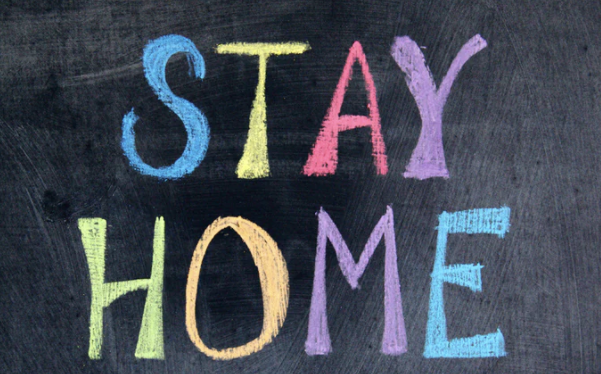‘Stay at home!’ Plastered across social media platforms, and the headline on every government and NHS website, this is our new guide for living: ‘Stay home’; ‘Save lives’. It’s a new code of conduct, our badge of social responsibility, along with keeping your distance and buying online.
In the context of COVID-19, such guidance is urgent, and necessary. We are seeing lockdowns across Europe (with the notable exception, at the time of writing, of Sweden), and increasing coverage of the plight of Britons abroad desperate to ‘get back home’. Home: it is one of our most simple, and yet complex, ideas – deeply entangled with our experiences of family life, with our sense of place and belonging, with refuge and with care. At least, if we are lucky. In February 2020, it was estimated that some 25,000 people were sleeping rough across the UK in 2019, while the homeless charity, Shelter, reported 280,000 people as homeless in England in the same year. Even if you have a home, it may not be a safe one. Listening to the news this morning, that fact was underlined by a report that a family of four has been found dead in what is being described as a ‘leafy village’ in Sussex. Two adults, two children, and a dog were found in their home on Sunday 29 March; the police are treating the deaths as a murder, but, in the usual formulation, ‘we are not seeking anyone else in connection with the incident.’
We can’t know yet what has happened in this particular instance, though the suspicion of ‘murder-suicide’ comes readily to mind (that suspicion is everywhere in current reporting). In the home, murder-suicide is another way of naming domestic violence in one of its most extreme, and destructive, forms. An extreme that also draws attention to domestic violence as a fact of everyday life for thousands of people – predominantly, women and children – across the UK. We know that violence against women, and children, in the home is on the rise, and that a decade of austerity has slashed state support for families where children are reported as at risk of abuse or neglect. ‘I’m spending all day on the balcony to keep away’ is how one woman describes her attempts to stay safe in the face of her partner’s episodes of drinking, and his erratic moods, during the current lockdown. Charities such as Relate are expressing concern that the outbreak of COVID-19, and the stresses of ‘staying home’, are going to see a further increase in domestic violence, with victims trapped at home and alone with their abusers.
The spectrum of domestic misery is a wide one – from a violence that ends in injury and death to the less visible, and far more prevalent, forms of coercion and control that make themselves felt in family life. Many of us know what it is like to live with someone – parent, partner, friend, adolescent, flatmate – who puts us ‘on edge’ with their moods or behaviour. Perhaps, especially their moods. Moods are powerful things, creating atmospheres for other people to live in. They can be remarkably difficult to bear, particularly if a parent’s mood dominated our childhood (‘Don’t bother your father’; ‘Keep out of your mum’s way’: the advice may be familiar). If we have a room of our own, a ‘home’ within the home, there may be some escaping it. Many people can lose themselves in a book, or a film, or in listening to music. But this period of ‘lockdown’ is going to bring some (even many) of us up against difficult, even desperate, feelings about what it means to ‘stay home’, and to have no, or little, chance of getting away. Those feelings may belong to the past: they may be the remnants of childhood or earlier relationships; or they may belong to our present, usually manageable but exacerbated by proximity. In either case, it may become difficult to experience ‘home’ as a safe refuge.
We don’t have to be in immediate danger*, or living in an abusive relationship, to struggle with such feelings. Knowing that you are not alone can be an important source of support. And psychotherapy can be an opportunity to explore those feelings in depth, offering the chance to change our own patterns of feeling and relating.
*In Brighton, Rise (https://www.riseuk.org.uk/) is currently maintaining its helpline service for people at risk and its website provides crucial information about national services, including the National Domestic Violence 24 hour helpline and peer-support forums.






